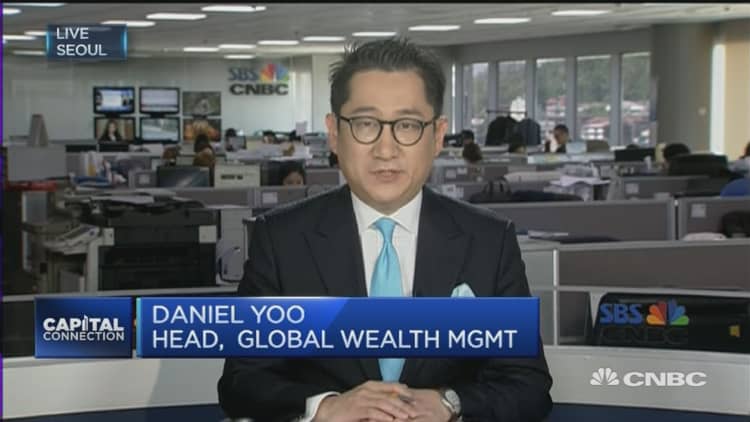South Korea's central bank chief said on Wednesday that the country's monetary policy rate cannot be slashed to zero percent anytime soon because the bank needs policy space to back ongoing corporate restructuring.
"We have limits that keep us from going to zero rates," said Bank of Korea Governor Lee Ju-yeol in a lecture at parliament.
"In case of sudden market volatility we have to scrutinize foreign flows. It may seem we are acting slowly but there is much for us to think about and consider."
Lee said the bank had to look at growth and financial conditions, as well as the ongoing restructuring of the country's massive shipping and shipbuilding industries, when changing its base rate - currently a record low 1.25 percent.
South Korea expects a 20 percent drop in major shipbuilders' capacity and a 30 percent drop in their workforce by 2018 from 2015, after the restructuring process.

In light of this, the government is waiting for parliament to ratify a 11 trillion won ($9.68 billion) extra budget to buffer the economy against possible shocks from the corporate overhaul.
The bank's policy will also focus on supporting economic growth rather than price stabilization because there was currently no danger of rapid inflation, the governor added.
Disappointing G20 talks
Wednesday's remarks were made after the governor returned from the recent meeting of finance ministers and central bank governors from the Group of 20 countries in Chengdu, which he called "a letdown."
"I felt this round of talks was exhausting and a letdown. It wasn't just me who felt this but other participants as well. The communique was little different from previous ones," he said.
The world's biggest economies said they would work to support global growth and better share the benefits of trade at the meeting, dominated by the impact of Britain's exit from the European Union and fears of rising protectionism.
Lee said signs of protectionism were popping up globally as monetary and fiscal policies became less effective at improving economic conditions.
"Central bank chiefs are continuously sending warning signs against excessive monetary easing as there will be consequences from low rates," Lee said.
($1 = 1,135.8000 won)

